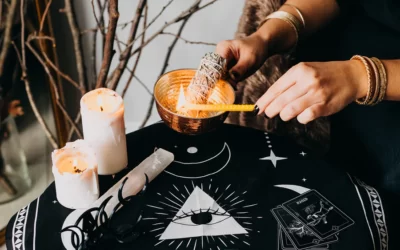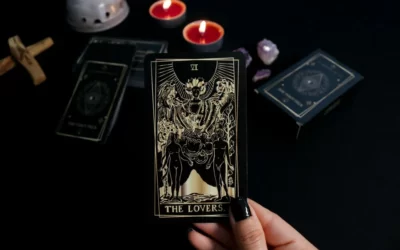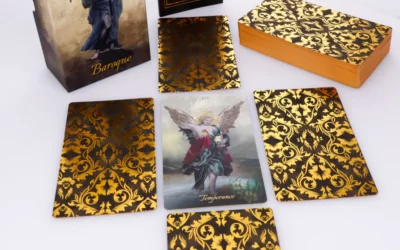Some people think that tarot is something magical. Some might take it a little further, saying it’s associated with witchcraft. When we look at the origin of tarot cards, it is seen that such relationships have been established throughout history. But really, is there any relation between witches and tarot? Are tarot cards witchcraft?
Last August, we wrote a blog post answering: ‘How do I explain Tarot cards to family, friends and colleagues?’. The blog post asks you to consider how you explain tarot to yourself. Only then consider diving into the many ways you can formulate your practice to non-practitioners. A common question non-practitioners ask is: are tarot cards witchcraft?
The short answer is no
While many witches practice divination, reading tarot alone doesn’t identify you as a witch. Creative writers use tarot for story telling. Business people use it for brainstorming. Even psychiatrists use it for conversing with their clients. Tarot is a language and a tool, and it’s your intention behind your use of any practice, as well as personal choice, which identifies you. If, however, you’re experienced on the topic, the real question you’re trying to answer is whether or not you identify as a witch. That we shall now explore.
Understanding Modern Witchcraft
Before exploring your identity, take the time to research what witchcraft means in the 21st century . In fact, modern witchcraft started to gain steam in the 1950s as a new spiritual work. If you are interested in spirituality, you may heard about “witchcraft”, “Wicca”, “Paganisim”, “Witchcraf”.
If you’re well acquainted with this world, you can skip this section. Otherwise, there are plentiful of blogs and social media communities. There’re also hashtags such as #witchcraft, #witchtok, #modernpaganism, #modernwitch and more for you to explore online.
A very rough summary of witchcraft would be crafting your spiritual belief and self-empowerment, and practising it in your own custom, meaningful way, so long as you are tapping into symbolism, energies (or magick) and the subconscious. You manifest that which you desire, protect yourself, and try to live harmoniously with the universe. To some, that means blending crystals, a vegan lifestyle, Ayurvedic yoga and chakra practises for a balanced self. Others follow the moon’s cycle and perform candle rituals to set their intentions and organise their lives. And for some, it’s also tarot cards.
Divination Witches
If you’re well acquainted with modern witchcraft, but only practice divination or even a mix of multiple practises, at some point you’re going to wonder whether or not you ‘qualify’ as a witch. Which is a silly thing to think, because it’s not about passing some witch test! Witchcraft is highly individual, so it’s about embracing your own feelings and decisions.
Divination witchcraft includes practises such as tarot, lenormand, astrology, pendulums, palmistry, runes, scrying, tasseonomy, numerology and other fortune-telling practises from around the world. Witchcraft is essentially about improving your own wellbeing and bettering your life and self. So you can use divination in witchcraft to make better decisions, understand and analyse the world around you, explore our inner world and more. If you use tarot to tap into the energies and higher meanings around you, perhaps keep track of your decisions in a journal and ask questions that bring confidence, clarity and decisiveness into your life, you very much sound like a divination witch if you wish to be one.
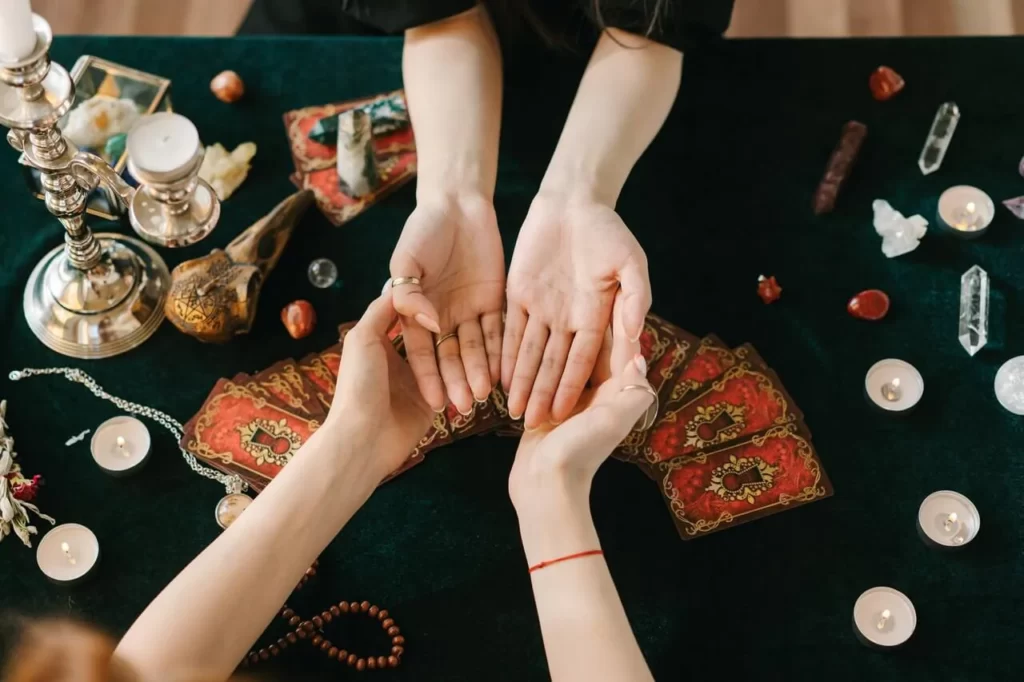
Divination without Witchcraft
If you don’t feel like identifying as a witch, that is absolutely your will. You might prefer ‘fortune-teller’, or prefer not to tap into spirituality and think of Tarot as a language skill, hobby, entertainment or an art-form. Maybe you’re just starting out and feel like you’re not quite ready to call yourself a ‘witch’. Or maybe, that’s never your intention! After all, not every tarot-reader is a witch. Sometimes, they’re just that: tarot readers, no more, no less.
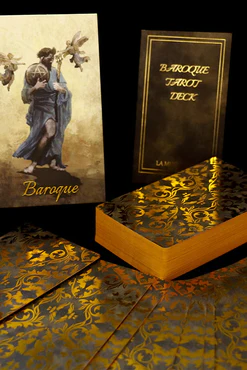
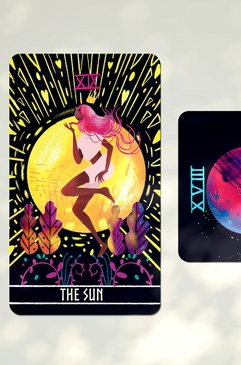


Tarot can enhance meditation practises. The cards can be a thinking prompt for practising mindfulness, gratitude or awareness. It can also be a prompt for talking to ourselves. For some people, it’s therapeutic. You even use tarot non-spiritually in your career or education as a form of brainstorming. It’s a great tool for visualisation or thinking outside the box. In the end, it’s up to you to ‘own it’, and choose which part of the many associations with tarot you wish to ‘own’, not just in the public eye but in your own mind.
Divination and other beliefs
Religions and beliefs are many, and there’s no one-fits-all advice to be given about tarot and any particular faith you subscribe to. Some beliefs blend very well, others not so much. With the mindset that tarot is a communication tool for clarity, you could figure what that might mean in the context of your faith, if you’re inclined to shape your faith off-the-book a bit. Whether that’s reading past lives as a Buddhist or getting advice from your guardian angel as a Christian, it’s up to your personal level of devotion whether or not you wish to alter by-the-book practises.
Post Scriptum
In the end, whatever you think about witchcraft and tarot, listen to your intuition. Listen to whether or not it feels right or comfortable. Your Guidance or higher subconscious self knows best and is always hinting you what is ‘best’ for you, and so long as you agree with yourself and have acceptance, you’re living your truth!

